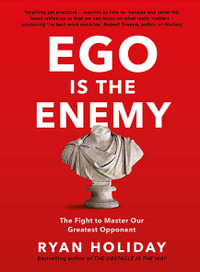Central banks now stand between societies and collapse, but are they still democratic?
Two decades of financial crises have dramatically expanded central banks' powers. In 2008, and then again in 2020, unelected banking officials found themselves suddenly responsible for the public welfare—not just because it was necessary but based on an idea that their independence from political systems would insulate them from the whims of populism. Now, as international crises continue and the scope of monetary interventions grows in response, these bankers have become increasingly powerful.
In Balance of Power, economist and historian Eric Monnet charts the rise of central banks as the nominally independent—but unavoidably political—superpowers of modern societies. This trajectory, Monnet argues, is neither inevitable nor unstoppable. By embracing the political natures of today's central banks, we can construct systems of accountability for how they interact with states and societies. Monnet shows that this effort will do more than guard against unjust power; it will put the banks to work for greater, more democratic ends.
With existential challenges looming and the work of the Federal Reserve and European Central Bank more important than ever, Balance of Power offers a trenchant case for what this century's central banks can—and must—become.
Industry Reviews
"The author's principal theme is the 'insufficient democratic accountability of central banks.'" * Wall Street Journal *
"Monnet takes the reader through the evolution of central banks' role in societies during the past few decades, within monetary policy as well as financial supervision. It is precisely the expansion of tasks and the scope of central banks' policies that give urgency to the discussion of the interplay between central banks and elected bodies in democracies. One of the key premises for the author's conclusions and proposals is that the monetary policy operations as well as the methodology of financial supervision has massive effects on the distribution of income and wealth. One can agree or disagree with this point of view, but it certainly warrants discussion."
* Central Banking *
"[An] impressive history of how central banks have become political superpowers of modern societies. . . . Monnet argues that central banks' monetary policies should be subject to democratic control, as the banks' current powers are too significant to be solely managed by independent authorities operating as inward-facing technocrats." * Library Journal *
"An unflinching, revelatory book. Monnet reopens the public debate on central banks for this century. A must-read." -- Thomas Piketty, author of 'Capital in the Twenty-First Century'
"Balance of Power explores the key challenge facing modern central banks: being democratic while remaining independent. Monnet captures everything that makes these institutions so interesting-and so essential to contemporary societies." -- Jean-Pierre Landau, former deputy governor, Banque de France
"A forceful argument that central banks' policies and money creation should be subject to democratic control. Populist? Maybe. But also bold and commonsensical? Absolutely." -- Helene Landemore, author of 'Open Democracy'
"Monnet shows that the political natures of central banks must be acknowledged-and then legitimated-if we are to retain their critical role for the public welfare. An essential work from one of the most important economic historians of our time." -- Jonathan Levy, author of 'Ages of American Capitalism'
"Balance of Power shows that the biggest challenges of our time-climate change, rising inequality, geopolitical fragmentation-become more solvable when we reconnect central banks to the people they are meant to serve. This is a book whose time is now." -- Saule T. Omarova, Cornell University
"A lucid, compelling case for connecting central bank policies to other imperatives of public policy, from the environment to wages and beyond. A must-read for anyone interested in how democratic institutions will adapt in the twenty-first century." -- Katharina Pistor, author of 'The Code of Capital'
























